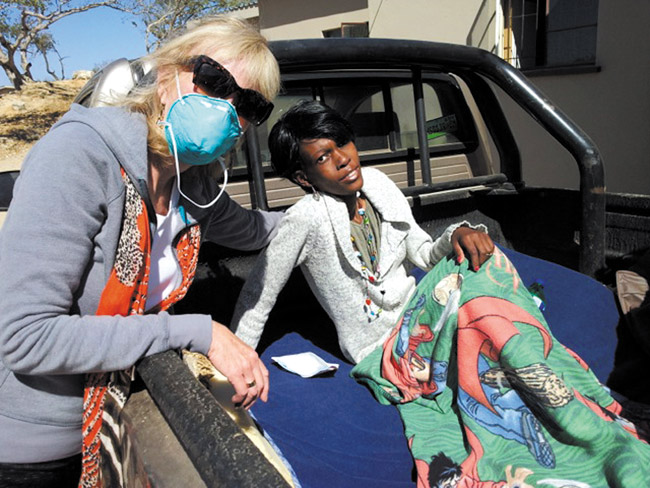Inspiration In The Most Humble Places
Coming home and going home. Everyone around me seemed to be doing it. Some were going back to their birth home, others were coming home after a long trip. These comings and goings home intersected with my own as I again traveled more than 12,000 miles to Swaziland, a place that strangely feels like home.
As I’ve written before, the lure of Swaziland is the people — especially the women and children: sweet, peaceful, humble and welcoming. Yet poverty and disease have intruded so egregiously upon their dreams that life is more a painful sprint than a hopeful marathon. Still, bright smiles belie it all. As in much of the developing world, a myriad of interconnected issues – poverty, a culture making girls powerless, deficient medical care, and HIV/AIDS leave women trapped in a vicious cycle. Becoming pregnant young, often via rape, no means of support, prostitution to earn income, HIV infection, pregnancy, then … you fill in the blank: terminal disease, self-induced abortions, abandoned babies, suicide.
This brings me to Nomsa, Project Canaan and going home. The above cycle of tragedy is her story. Today, Heart for Africa’s Project Canaan is Nomsa’s home. Yet, until Janine Maxwell, HFA co-founder and “mother” to Swazi homeless women and abandoned babies living on Project Canaan, stepped in, the 26-year-old lived in despair for years in the government TB hospital. She’s one of the growing number worldwide infected with the highly infectious XDR-TB, Extensively Drug Resistant Tuberculosis. (HIV infection enables XDR-TB). Though she can’t interact with her twins, Leah and Rachel, who live at Project Canaan’s toddler home, she lives comfortingly nearby. Nothing can be done for Nomsa, except to provide love, prayer and needed care.
Still, within her weak, withering 70-pound frame is a strong-willed fighter, and Nomsa wanted to go home: her childhood homestead, a place of good memories of a father, mother, siblings, cows for milking, chickens for grilling, and a sweeping view of rolling hills. Even for a few hours.
So on my last day at Project Canaan, thanks to Janine, I saw Nomsa go home. With the help of caregiver Emily, a volunteer hospice nurse from Michigan, Nomsa was fashionably dressed and eager. Anthony, a PC employee and Nomsa’s frequent helper, was today’s driver. He had caring-ly prepared a bed in the back with soft cushions and blankets (it’s Swaziland’s winter) for the bumpy, two-hour ride. Donning the required medical masks, he and Emily helped Nomsa into the truck. Her luminous smile veiled constant suffering.
Finally, we arrived in a remote area where infrequent huts were separated by dugout roads. Nomsa’s two half-sisters, a cousin, a couple of the husbands, and some emaciated dogs congregated around Nomsa as she was helped from the truck. Their faces reflected shock at her frailty. Inside, Nomsa melted into a sofa and peace swept her face. Home. After a couple of hours of chatting in SiSwati language, only the sisters remained. One began to weep, then said in English, we need singing. Suddenly, Nomsa belted out a strong melodic phrase joined by the sisters in unmistakable
African harmony. Sweet music then melted into intense prayer, a bubbling cacophony of spirit language. Then more tears.
The goodbyes were bittersweet. Promises of visits to Nomsa at Project Canaan were made, but they hadn’t visited her at the closer hospital. Why would they now? Even Nomsa’s dream of a grilled chicken went unfulfilled. The chickens had escaped to the bush, she was told. Come earlier next time.
The ride home her new home was quiet. She was spent. Going home was exhausting; coming home reflective.
On my Ethiopian Airways flights to and from Africa, I had several conversations with Ethiopians going back home to Ethiopia and coming back home to America. Each told of a life journey filled with sadness, redemption, joy, death, acceptance and new beginnings.
Going home and coming home, clearly part of human life. And home? Clearly it’s the place love lives.
Support Heart for Africa’s Angel program for abandoned babies; heartforafrica.org.
Information on XDR TB: who.int/tb/challenges/mdr/xdr/en/
susanpagecoffee@gmail.com






